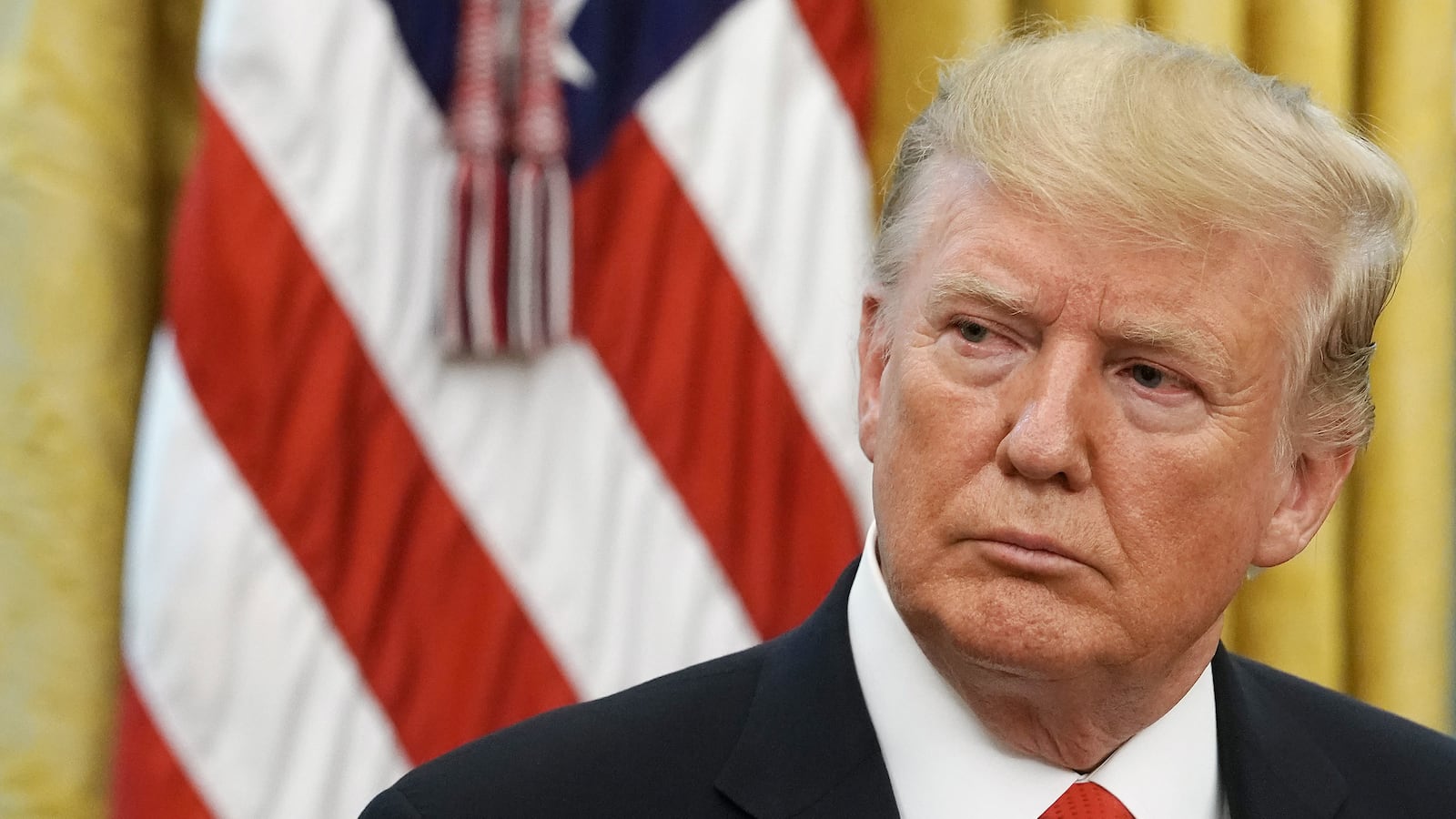A former gun lobbyist is playing a crucial behind-the-scenes role in the White House’s discussions over what type of legislative response to take after the mass shootings in El Paso and Dayton.
Michael B. Williams, a Deputy Assistant to the President and Counselor to the Chief of Staff, is a little-known figure outside the White House. But according to sources familiar with operations there, he has played a large role in some critical policy initiatives, among them initiatives on gun policy.
Williams has sat in on meetings with Hill staff as part of discussions on expanded background checks and other legislative proposals. On Wednesday, he joined President Donald Trump on a roughly forty minute phone call with key Sens. Pat Toomey (R-PA), Chris Murphy (D-CT), and Joe Manchin (D-WV)—and their respective staff— as they went through the specifics of the Senate background check bill.
During that call, the president said that he would be offering up his specific recommendations in the next 24-to-48 hours. And relevant stakeholders believe that he will use the window to try and find some sort of proposal that doesn’t go as far as the Manchin-Toomey expanded background checks bill as a means of placating both conservatives and the gun rights lobby.
Williams, certainly, could help him with that task.
Prior to coming to the White House, Williams served as General Counsel for the Amercian Suppressor Association, a trade association representing every segment of the suppressor and silencer industry, including, according to its website, manufacturers, distributors, dealers, and consumers.
In that role, Williams was integral to the group’s federal and state lobbying efforts. According to the organization itself, he largely wrote the text of federal legislation, officially introduced by former Rep. Matt Salmon (R-AZ), to exempt silencers and suppressors from restrictions under the National Firearms Act. “We spent months working with attorneys from the [National Rifle Association] and Rep. Salmon’s office” on the specific language of the bill, Williams told Guns.com in a 2016 interview.
That legislation stalled after it was introduced in 2015. It has been reintroduced in two subsequent congressional sessions, but has yet to receive even a committee vote.
The ASA said that Williams “successfully lobb[ied] on both the State and Federal levels,” but federal lobbying disclosures show no record of Williams registering to do so. The ASA did not immediately respond to questions about that discrepancy.
At the state level, Williams’ advocacy efforts appear to have been successful. He was a registered ASA lobbyist in New Hampshire in 2016, where the organization successfully pushed for a bill to legalize suppressors for hunting. The state’s Democratic governor, Maggie Hassan, signed the bill into law that year.
As a former registered lobbyist, Williams was barred from participating in decision-making affecting the suppressor industry for two years after his Trump administration appointment. He joined the Trump White House in January 2017, meaning that “cooling-off” period ended earlier this year, allowing him more latitude to work with the industry for which he previously advocated.
That the Republican president would rely on a former gun lobbyist to assist in internal deliberations on gun policy is far from shocking. A Democratic president would almost assuredly have staff who served in some capacity at gun control groups; much in the way that they would have environmental lobbyists help them craft climate change proposals.
“As a matter of practice, the White House employs qualified staff with subject matter expertise to work on policy issues – this is a good thing,” a White House official told The Daily Beast. “Michael is part of a very large team of White House staff engaging with members of Congress and their staffs on this important issue.”
But Williams’ role in deliberations does illustrate the delicate balance of political powers that exists as Trump and his team engage with Democrats on what set of reforms both parties could support in the wake of a spree of mass shootings.
Before his stint at the Amercian Suppressor Association, Williams also worked briefly at the NRA as a law clerk, according to his Linkedin Page. The gun rights group and its CEO, Wayne LaPierre, have closely held Trump’s ear throughout his time in office. And it has pushed him to hold off on background checks legislation as gun discussions have unfolded, including holding calls with the president after which—the White House’s own aides believe—NRA officials quickly leaked that Trump had decided to oppose “universal” background checks.
The Senate bill under consideration notably does not call for “universal” background checks; merely expanded background checks. The Manchin-Toomey bill, considered the Capitol Hill benchmark on the issue, would extend criminal and mental health background checks to firearm purchases made at gun shows and over the internet. Notably, it would not extend background checks to the giving or selling of guns between friends and family. The legislation failed to pass the Senate in 2013, months after the Sandy Hook shooting and once more in 2015.
But it was that call and the NRA’s proximity to Trump more broadly, that has led Murphy to remain skeptical that a final deal can be achieved.
"I'm still less than 50/50, because I know the president has a lot of people calling the opposite direction from us,” he told reporters on Wednesday.
Wednesday’s call offered little in the way of specifics of what legislative items Trump would or could support. A source familiar with the contents of it said that the trio of Senators made the case for the Manchin-Toomey bill and stressed to the president that it “wasn’t universal.” Trump, the source added, said that his staff would make recommendations for him and that, within the next day or two, he would “go from there,”
“I'm not going to predict a timeline for this,” Toomey told reporters after the call. “There are an awful lot of people that are providing unsolicited advice to the president, probably solicited advice as well.”







